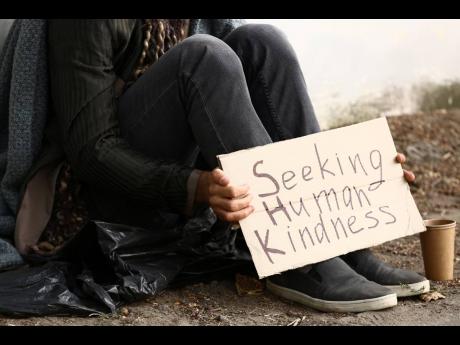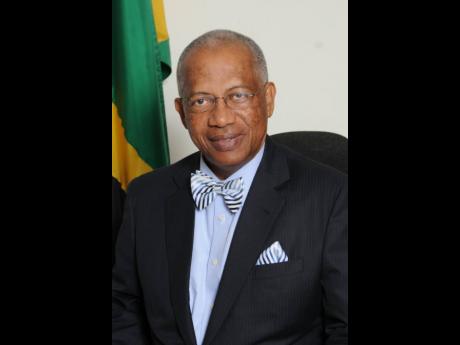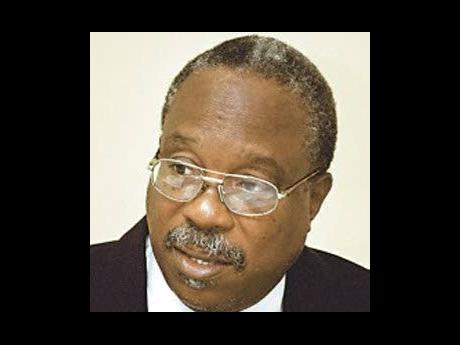Dennis Minott | Behold: vast cultivations of kindness!
Call for mandatory compassion and emotional learning education in CARICOM states
In a world grappling with flailing social complexities, the significance of compassion and emotional learning (mCEL) has never been more apparent. mCEL, my strongly advocated examinable process (by CE, PEP, CSEC, CAPE, and the like) for acquiring the skills necessary to manage emotions, build relationships, and make responsible, compassionate decisions, is crucial for personal and social well-being.
Recognising this, CARICOM needs to take a bold step forward by introducing mandatory mCEL education in its schools. Australia, Bhutan, Brazil, (post-Pinochet) Chile, Finland, Portugal, and Spain have all reaped the initial benefits of such quiet, minimally intrusive-yet-intelligent mCEL-like investments.
This urgent proposition could be transformative because it arrives at a time when Caribbean states, like many nations in these parts, face a racing rip tide of violence and narcissism, coupled with a concerning normalisation of cruelty. As the mathematician Kristen Gyles aptly points out in her insightful November 17, The Gleaner column, ‘The Epidemic of Heartlessness’, I earnestly offer that the prevalence of these issues underscores the need for societal transformation anchored in empathy and compassion - a Caribbean mindset that reflexively rejects and abhors, not habitually adores and absolves, overloaded reptilian dumpster trucks of mimicry, self, self-love, and narcissism.
The proposed mandatory mCEL curriculum would serve as a powerful catalyst for this transformation. By integrating mCEL into the core curriculum from early childhood to secondary education, Caribbean communities can raise generations of young people equipped with the skills and values necessary to navigate an increasingly interconnected, though individualistic, and callous world.
MULTIFACETED BENEFITS
The benefits of mCEL are multifaceted and far-reaching. Scientific studies consistently demonstrate that mCEL/SEL programmes positively impact students’ self-awareness, social awareness, self-control, relationship skills, decision-making abilities, entrepreneurship, and inclination towards kindness. These skills, in turn, lead to improved academic performance, reduced behavioural problems, and enhanced emotional well-being.
Further, mCEL will foster a sense of belonging and school safety, creating a nurturing environment where students feel happier, less risk-averse, supported, and empowered to thrive. By cultivating a school culture of kindness and compassion, mCEL programmes could effectively address the root causes of violence and cruelty that continue to mentally enslave, slow down, and stunt too many swathes of Caribbean society.
The introduction of mandatory mCEL education is not merely an educational reform; it is proposed as a societally invasive investment to yield a better, brighter future in CARICOM. By nurturing a generation of empathetic and compassionate citizens, CARICOM nations will lay the foundation for more harmonious, just, and thriving societies.
This transformation will require a smart, collaborative evidence-based intervention from the ministries of culture, education, and security. Working together, these ministries can develop and implement a comprehensive mCEL curriculum that is both effective and sustainable. Additionally, while not a must-have precursor, mental health support services should be readily made available to address the psychological factors contributing to our almost regionwide proclivity for violence, crudity, and cruelty.
TRANSFORMATIVE JOURNEY
As our people embark on this transformative journey, it is crucial to adopt what I clumsily call an ‘agri-cultural’ approach, cultivating kindness and compassion as we would cultivate crops in a banana, pigeon-pea or sugar-cane field. By creating supportive environments where these values are not only taught but also actively practised and celebrated, CARICOM states can become gardens, nay, 21st-century plantations of kindness and compassion, where empathy and understanding flourish, and the sundry noxious weeds of toxic self-love wilt, wither, retreat, and fall to the ground seedless and suckerless.
This transformative move will require the dedication and commitment of not only educators but also parents, entertainers, influencers, media, communities, government functionaries, and political leaders. However, the rewards are far-reaching and immeasurable. By investing in mCEL education, CARICOM states would be investing in the future of the young and, in turn, the future of our exuberant, vigorous, yet often-incautious citizens, in their thousands.
Here’s the thing: Let us embark on this unavoidable journey of compassion and emotional learning, teased and provoked by reawakened, re-enlightened, and repurposed culture ministries that, beyond applauding achievements, incubate and nurture our portion of precious talents and fuel our flashes of sparks in a society where mindfulness, kindness, and compassion are not mere ideals but the very foundations upon which we must build our future. Together, we can cultivate a kinder, more compassionate Caribbean, where the seeds of empathy and understanding blossom into a bountiful and fecund harvest — consistent bearings of mature quadruple-vesicled (four-pegged) Caribbean fruit varieties, fruit that refreshes our people with hope, healing, peace, and prosperity in a prudently created abundance of satiating succulence.
REMEMBERING ‘WINTY’
I fervently wish that Professor Winston ‘Winty’ Davidson were still living on earth, orating, kicking, ministering, treating, and singing away for this fortis goy and other goyim from KC, QRC, Cumbermere, and elsewhere. Throughout second to fifth forms, we sat next to each other, by choice, in school and, for a year, in the KC choir. I cherished my friend and feel it for his beloved wife Sonia and the exemplary girls that they raised. Among his last words to me were: “I always lift you up in prayer, Dennis.”
Winty did so much good for Kingston College, for football, for UWI, for UTech, for the Caribbean, for public health, and for humanity. Join me, dear readers, in lifting that family of Davidsons up now.
Dennis Minott, PhD, is the CEO of A-QuEST-FAIR. He is a renewable energy specialist and worked in the oil and energy sector. Send feedback to columns@gleanerjm.com



